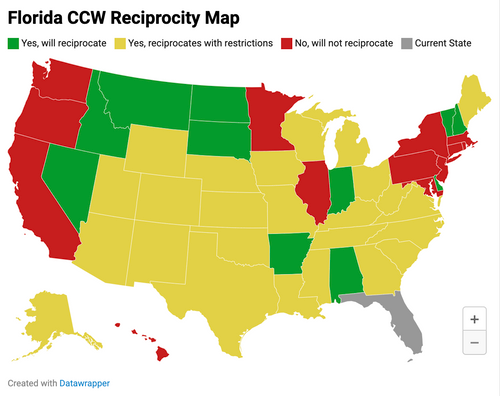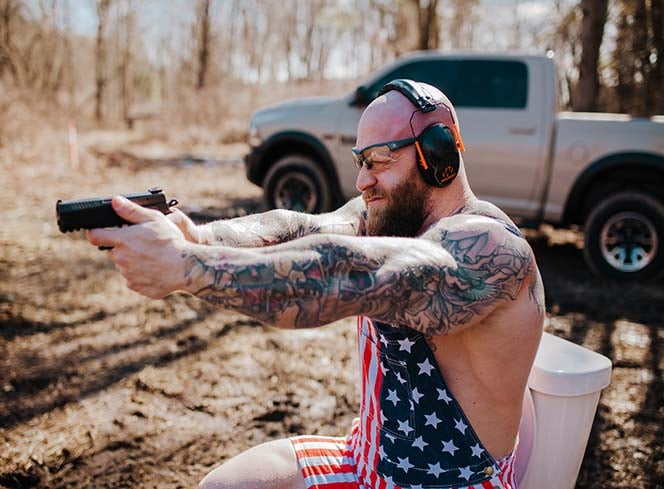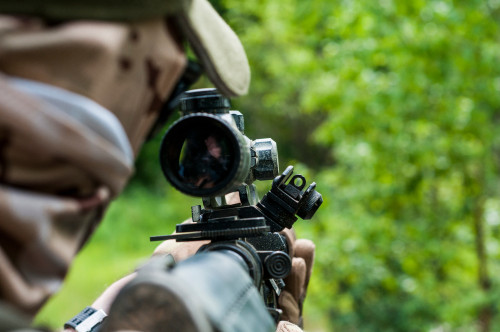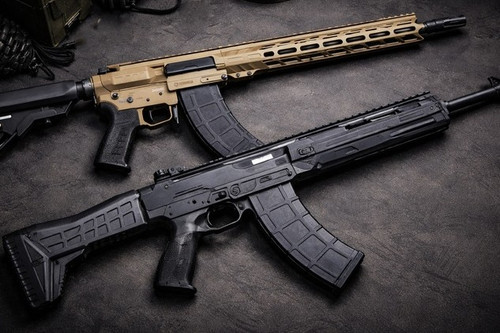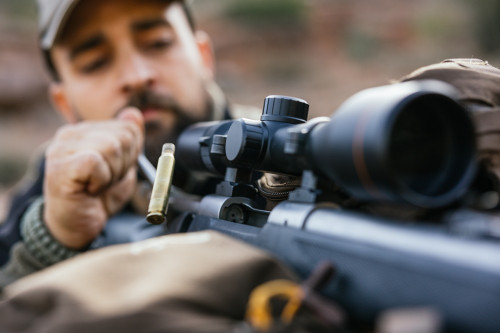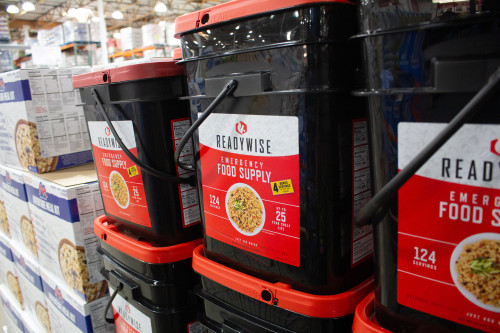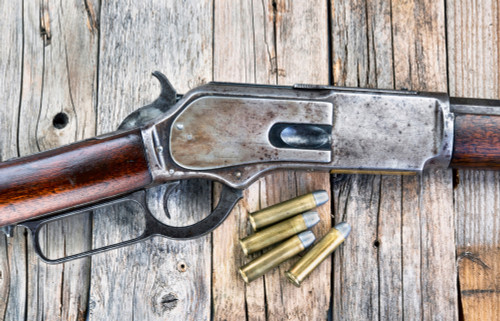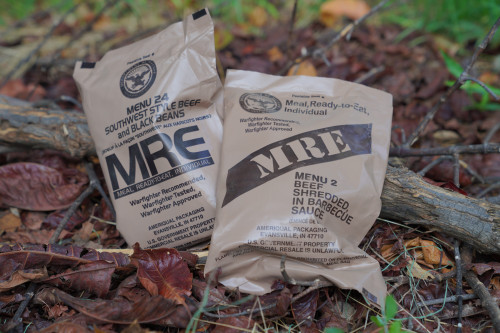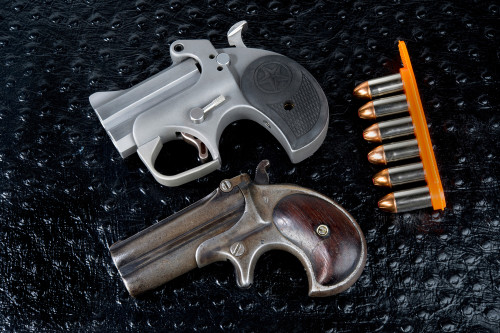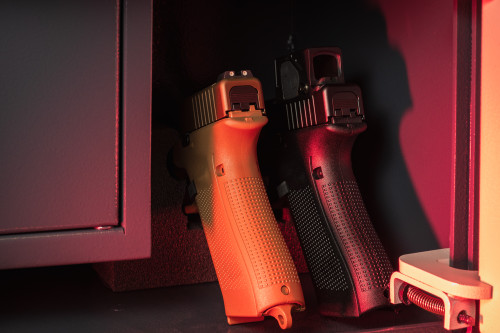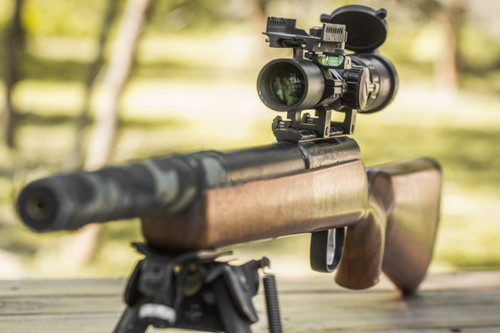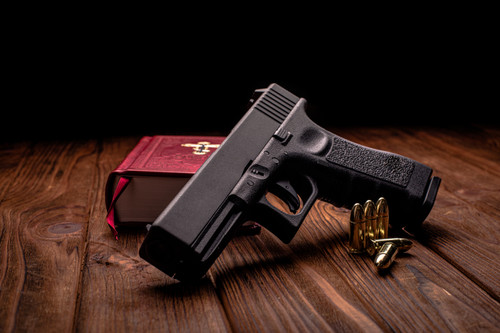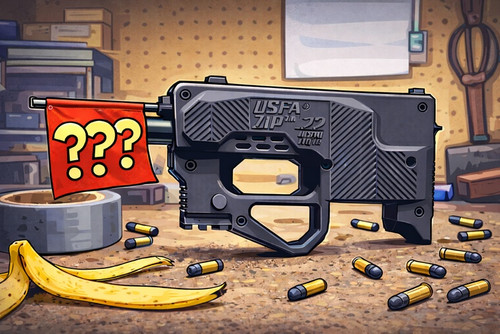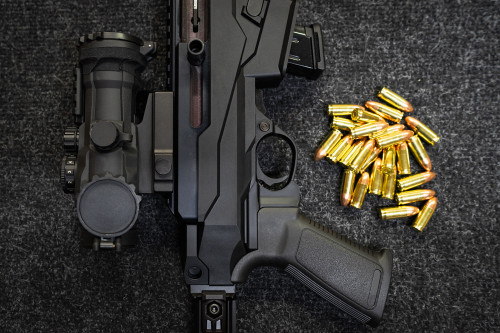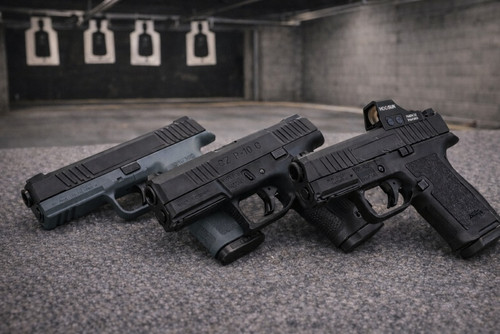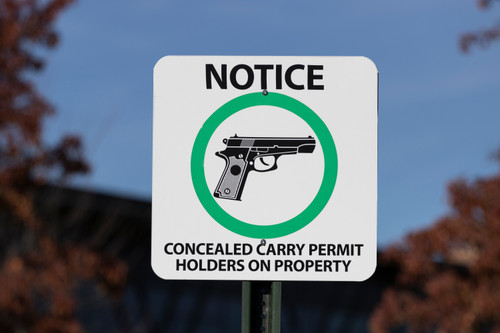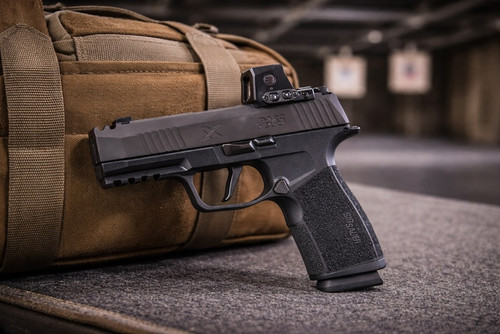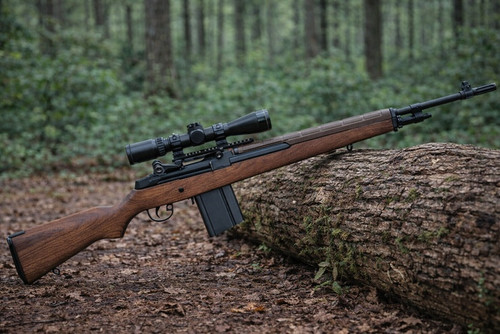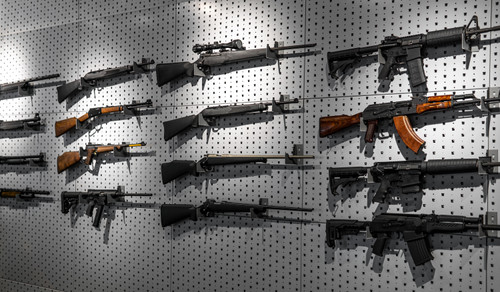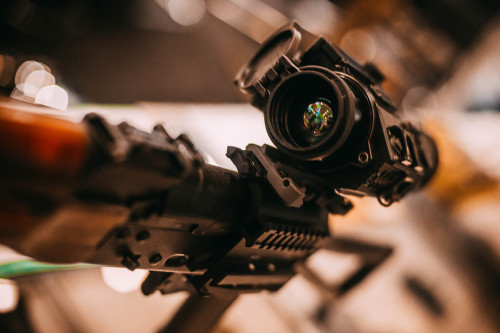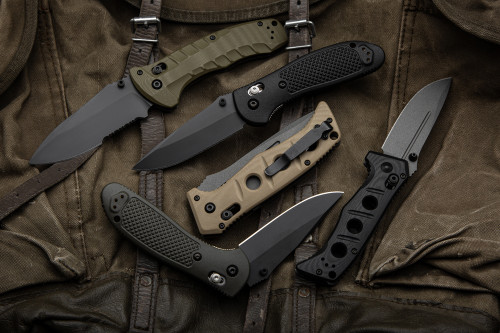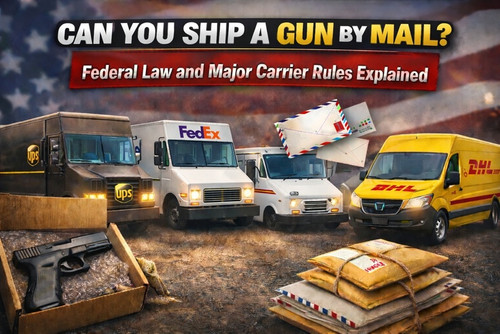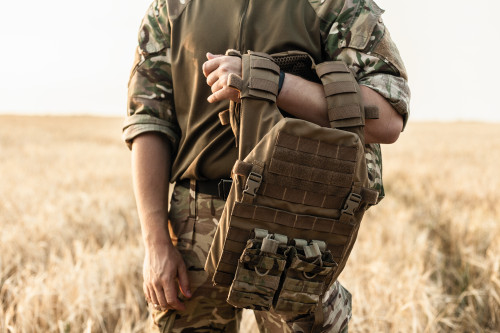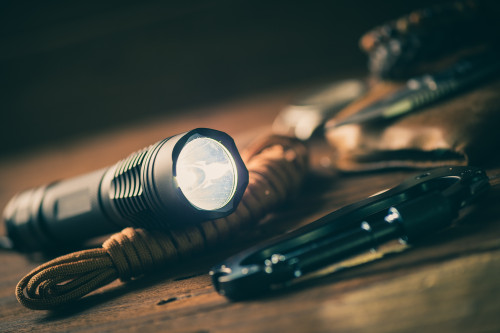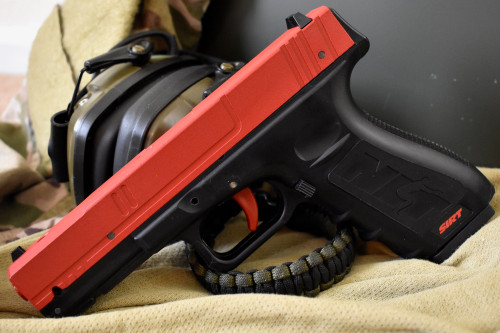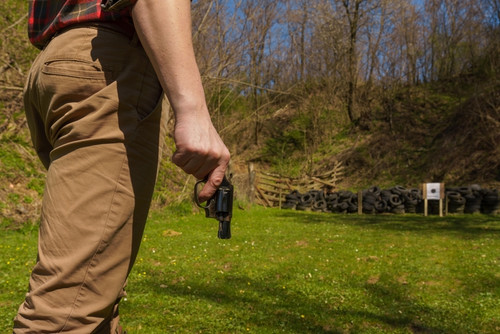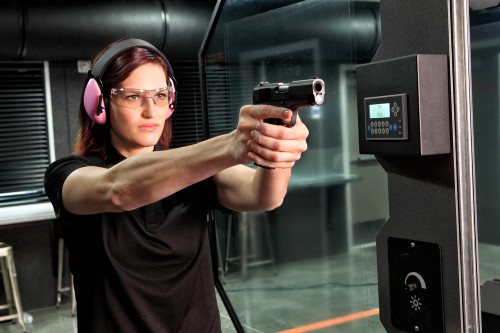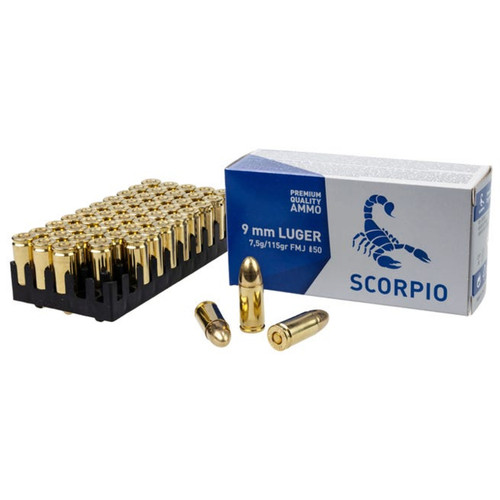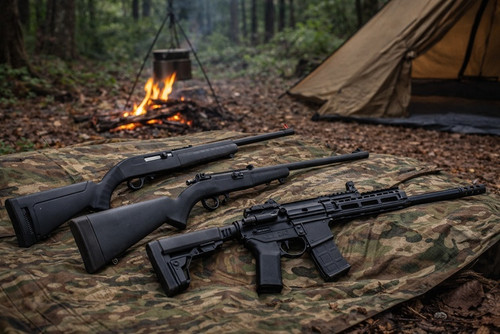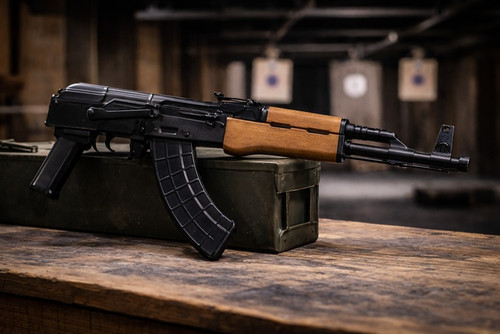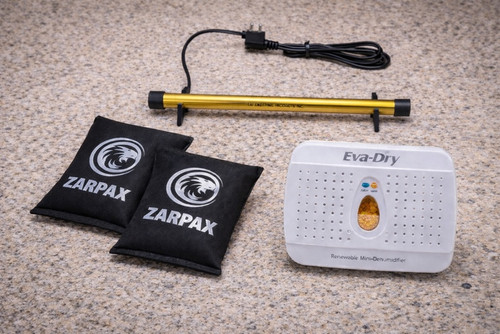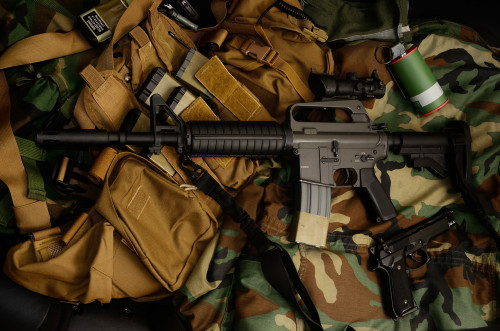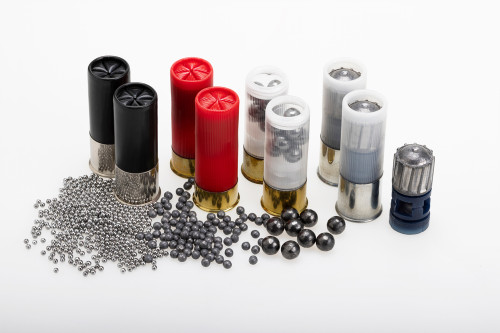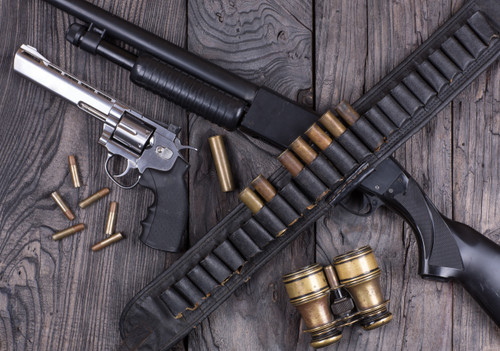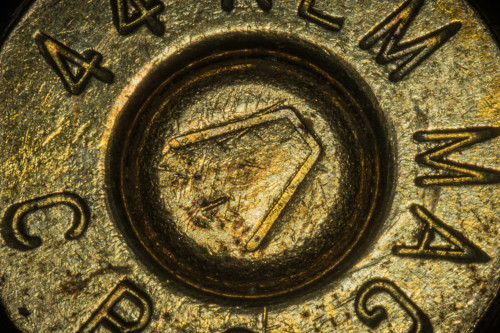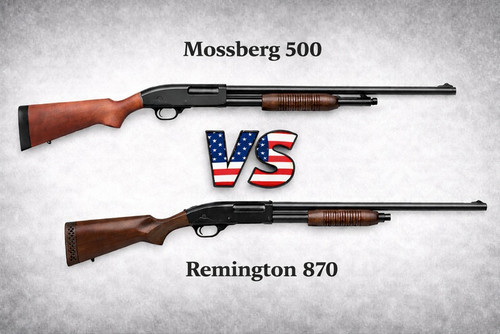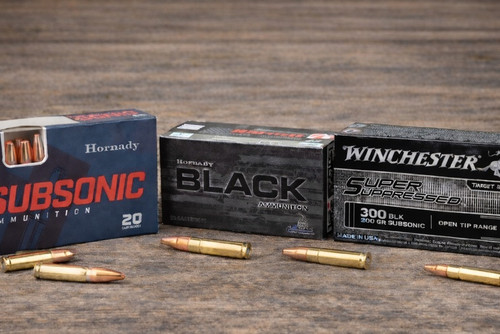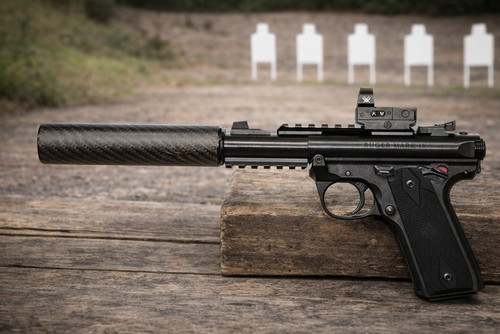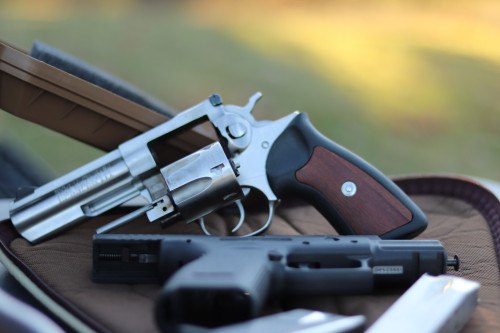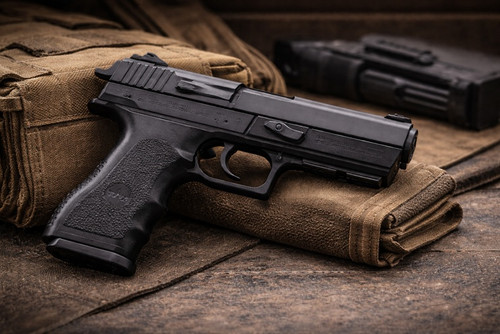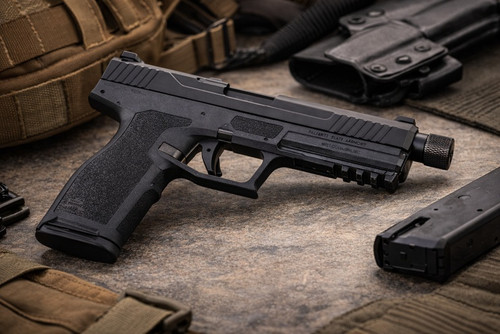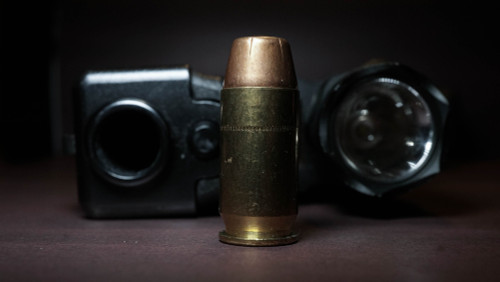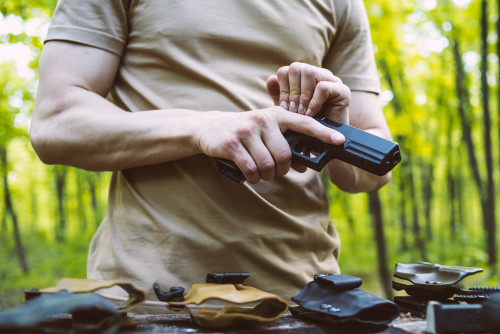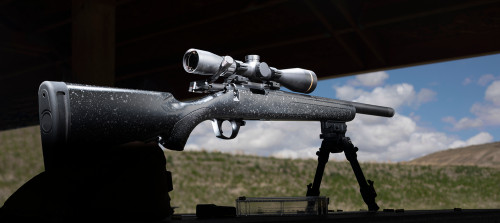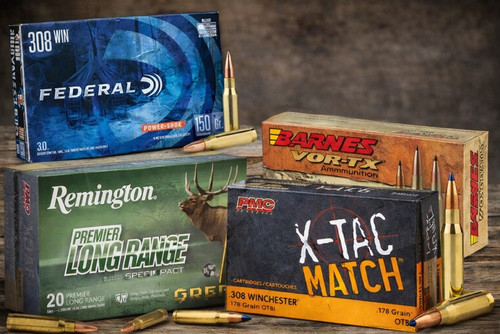Florida is one of the freest states in the country regarding firearms and self-defense. Permitless carry is now the law along with Castle Doctrine and Stand Your Ground. In Florida, firearms are a way of life and a foundational part of the culture.
But remember, with great power comes great responsibility. Florida state laws are designed to maximize your freedom, but the onus is on you to be a safe and effective concealed carrier. If you carry a gun, you need to know the relevant rules and regulations.
In this guide, we’ll cover everything you need to know about concealed carry in Florida including reciprocity with other states, how to get a license, and specific rules regarding the purchase, carry, and use of a firearm in Florida.
Legal Disclaimer
This article doesn’t constitute legal advice. We’re communicating informally here to make this information easy to grasp without getting lost in legal mumbo jumbo. With that said, it’s the legal mumbo jumbo that will determine (in court) whether you end up in trouble regarding firearms.
We’re trying to be as informative and accurate as we can, but if you need clarification, it’s essential to cross-check the information here with actual laws. If you have additional questions or concerns, we recommend consulting with an attorney experienced in self-defense law.
1. Quick Stats
- Number of other state permits honored in Florida: 35
- Number of states that honor Florida permits: 37
- Percentage of people licensed for concealed carry in Florida: 10.5%
- Number of issued licenses in Florida: 2.3 million
- Minimum age to carry a concealed firearm in Florida: 21
- Florida concealed carry license validity: 7 years
2. Florida Concealed Carry Overview
This section provides an overview of the concealed carry laws and relevant weapons laws in Florida.
Carry Type
Due to recent (2023) legal changes, Florida is now a permitless (constitutional) carry state, which means any Florida resident who can legally possess a weapon can carry it concealed without a permit or license. In this context, a weapon refers to a handgun as well as a taser, stungun, tear gas gun, knife, or baton.
Florida residents (and non-residents) can additionally obtain a Concealed Weapons License (CWL) issued by the Florida Department of Agriculture and Consumer Services (FDACS). Obtaining this license is beneficial for a variety of reasons including:
- Concealed carry reciprocity agreements with other states
- Exemption from waiting periods when buying guns
It’s important to note that constitutional carry applies to Florida residents only. If you want to carry a concealed handgun in Florida as a non-resident, you must have a concealed carry permit from a state with Florida reciprocity agreement or obtain a Florida CWL.
Open carry is generally not legal in Florida. Exceptions include specific activities such as fishing, camping, competition shooting, certain types of hunting, and while traveling to and from these activities. You can also open carry if you run a gun sales or repair business.
Florida Statute 790.01, 790.013, 790.015, 790.053
CWL Details
To be eligible for a Florida CWL, applicants must be 21 years or older and complete a firearms training course. Exceptions are made for active duty military or honorably discharged veterans.
Applicants must also be a US citizen or resident alien and meet specific requirements related to criminal history (more on this later). The CWL is valid for 7 years.
Your CWL is not linked to your driver’s license, so police will not immediately be notified about your CWL status during a traffic stop. However, law enforcement officers have access to a concealed carry registry that is unavailable to the public.
Florida is a shall-issue state, which means that if an applicant meets the requirements, the FDACS must issue the CWL.
Florida also issues CWLs to non-residents.
Local Preemption
All laws related to guns, weapons, and ammunition are reserved for the state. No local laws or regulations can preempt state gun laws. Any attempt by local authorities to supersede state gun laws can be met with legal action or removal from office.
However, state gun laws allow for some flexibility regarding local ordinances, such as whether or not you can have a gun in your car in a school parking lot or background checks for private gun sales. Be sure to know your local regulations.
Red Flag Law
Florida has a Red Flag law, which gives law enforcement officers or agencies a legal pathway to prevent specific, high-risk individuals from possessing a firearm for up to 12 months.
Other Weapons
As a general rule, Florida concealed firearm laws apply to other weapons, such as tasers, chemical sprays, batons, and knives. These must be carried and used for legal purposes. Pepper spray must be less than two ounces.
Tasers do not require a license for purchase or possession and can be openly carried for defensive purposes. Tasers are not allowed to be carried at schools.
Magazine Limits
Florida does not restrict firearm magazine capacity.
Prohibited Ammo
Certain types of ammunition are prohibited to own in Florida. These include:
- Armor-piercing rounds
- Dragon’s Breath shotgun shells
- Bolo shells
- Flechette shells
Prohibited Weapons
Some specific weapons and accessories are prohibited to own in Florida. These include:
- Short-barrelled rifles: Modified rifles with barrels less than 16 inches, and/or an overall length less than 24 inches.
- Short-barrelled shotguns: Modified shotguns with barrels less than 18 inches, and/or an overall length less than 24 inches.
- Machine guns: Firearms that shoot more than one shot automatically with a single press of the trigger, allowing for continuous fire.
- Bump stocks: An attachment used to increase a gun’s rate of fire.
- Ballistic knives: A system that propels a knife-like blade that separates from the handle using a spring or compressed gas.
Antique or historical items are excluded from this category. Prohibited weapons specifically refer to those that function or could be made to function quickly.
Florida Statute 790.221, 790.222, 790.225
3. Florida Concealed Carry Reciprocity
Reciprocity refers to the extent to which other states honor the Florida CWL and to which Florida honors the concealed carry permits of other states. Generally, Florida requires explicit agreements with other states for full reciprocity.
States With Full Reciprocity
These states fully honor the Florida CWL and vice versa:
- Alabama
- Arkansas
- Delaware
- Georgia
- Idaho
- Indiana
- Mississippi
- Montana
- Nevada
- New Hampshire
- North Dakota
- South Dakota
- Vermont
States With Restricted Reciprocity
These states honor the Florida CWL and vice versa but with certain restrictions:
- Alaska
- Arizona
- Colorado
- Iowa
- Kansas
- Kentucky
- Louisiana
- Maine
- Michigan
- Missouri
- Nebraska
- New Mexico
- North Carolina
- Ohio
- Oklahoma
- Pennsylvania
- South Carolina
- Tennessee
- Texas
- Utah
- Virginia
- West Virginia
- Wisconsin
- Wyoming
States With No Reciprocity
These states do not recognize the Florida CWL:
- California
- Connecticut
- District of Columbia
- Hawaii
- Illinois
- Maryland
- Massachusetts
- Minnesota
- New Jersey
- New York
- Oregon
- Puerto Rico
- Rhode Island
- Washington
4. Florida Rules for Buying a Gun
These are the key rules you need to know when buying a gun in Florida.
Purchase Permit
No purchase permits are required in Florida. If you can legally own a gun (e.g., you’re not a convicted felon), you’re good to go.
Background Checks
Background (criminal history) checks are required when buying a gun from a licensed retailer in Florida. Possessing a CWL does not exempt you from this requirement. Background checks are not required when buying from private individuals.
However, Florida law grants individual counties the right to require background checks for private sales as they see fit. In practice, this might apply to purchases made from non-licensed sellers at gun shows, which are technically private transactions.
Waiting Period
When buying guns from a licensed retailer, there is a three-day minimum mandatory waiting period imposed between the purchase and delivery of a firearm. CWL holders are technically exempt from waiting periods, but still must wait for the background check, which usually takes three or more days.
This waiting period applies specifically to handguns. Generally, rifle purchases do not require a waiting period if the buyer has completed an approved hunter safety course or holds a valid Florida hunting license.
Registration
Florida does not require firearm registration. If the gun is legal to own (e.g., not a machine gun), you're good to go.
Minimum Age for Purchase
Generally, you must be at least 21 years old to purchase a handgun in Florida. Exceptions are made for active-duty military personnel or honorably discharged veterans.
It’s illegal to sell any weapon to anyone under 18 years of age without permission from a parent or guardian.
Florida Statute 790.17, 790.18
5. Florida Rules for Carrying a Gun
This is an overview of rules and laws related to carrying and possessing a firearm in Florida:
Prohibited Locations
While you can generally carry a concealed weapon anywhere in Florida, there are some locations where concealed carry is explicitly prohibited by state law, even with a CWL:
- Schools including kindergartens, elementary schools, and secondary schools
- Colleges and universities
- Vocational centers
- Sporting events at schools, colleges, or universities
- Career centers
- Police stations, sheriff stations, and highway patrol stations
- Detention facilities, prisons, or jails
- Courthouses and courtrooms
- Polling locations
- Legislative meetings
- School board meetings
- Hospitals providing mental health services
- Bars and bar areas of restaurants
- Airport passenger terminals
- Businesses that deal with dangerous chemicals or explosives
- Some federal parks or wildlife areas (be sure to check before you go)
- Some hotels (hotels set their own policy)
- Places of nuisance (e.g., illegal casinos, brothels, gang houses, etc.)
- Walt Disney World resorts (including parking areas)
If you show up armed at a location that prohibits concealed weapons, you need to secure your weapon in your car. However, state law allows schools (and Disney, it seems) to enact additional policies that even prohibit guns in the parking lot, so plan ahead.
That said, Florida doesn’t enforce “ no weapons allowed” signs posted beyond the specific cases outlined here. If you see a sign like this, you are under no obligation to follow it unless it is a location listed above.
Duty to Inform Police
In Florida, you do not have a duty to inform police that you are carrying a concealed weapon or that you have a weapon in your car. However, if the officer asks, you should answer truthfully as it is against the law to lie to a police officer. In any case, informing an officer ahead of time can only work in your favor to show cooperation and to ensure a smooth encounter.
Also, don’t just say, “I have a gun.” Instead, say something like, “I have a concealed firearm.” After that, the officer will provide additional instructions. Just remember, being a police officer is a tough and dangerous job. Don’t make it any harder than it has to be.
Carrying While Intoxicated
According to the law, you are allowed to carry a concealed weapon while intoxicated. However, it’s important to remember that carrying a firearm is a serious responsibility. If you have a hard time handling alcohol and other substances in public, leave your gun at home and allow other, more serious people to take responsibility for your safety.
Minimum Age for Possession
Generally, you must be at least 18 years old to possess or transport a handgun in Florida.
Exceptions to this rule include hunting and marksmanship competition, where you must be at least 16. If you’re under 16, you must be supervised by an adult. You’re also allowed to transport an unloaded firearm to and from these activities.
6. Florida Rules for Using a Gun
This is an overview of rules and laws related to using a firearm in Florida:
Use of Force
In Florida, you generally have the right to meet force with force. If anyone tries to unlawfully force you to do anything, you have the right to use as much force as necessary (but not more than necessary) to stop them.
If you reasonably believe someone is threatening you or someone else with deadly force, you have the right to use deadly force to defend yourself and others. Just be aware that you’ll have to be able to explain why there was no other option if you end up in court for discharging your firearm.
Florida also provides the right to use force (including deadly force when necessary) to prevent forcible felonies, which are crimes that involve the use or threat of violence against any individual while committing a felony. Forcible felonies include:
- Treason
- Murder and manslaughter
- Sexual battery
- Carjacking
- Robbery, home-invasion, and burglary
- Arson
- Kidnapping
- Aggravated assault, battery, and stalking
Remember, you’ll always have to explain your actions to the police and possibly to a jury. Even if you’re forced to make a split-second decision, you’ll be held accountable for what you choose to do. The keys to legal and effective self-defense are skill development, scenario planning, and comprehensive knowledge of the law.
Florida Statute 776.012, 776.013, 776.08
Defense of Dwelling
Florida is a Castle Doctrine state, which means you have an unquestioned right to defend your home or property from intruders. This idea is predicated on your right to be safe in your home, in your car, and on your property.
If an intruder enters your home unlawfully, you automatically have the presumption of fear of death or great bodily harm, which means you can use force or deadly force to stop the intruder or force them to flee. Use of force rules still apply, of course, but the benefit of the doubt is shifted heavily toward the defender.
However, keep in mind that this is nullified if the “intruder” also has a legal right to be there. In other words, you can’t kick your spouse out of the house, then claim Castle Doctrine when they try to come home.
Defense of Person
Florida is a Stand Your Ground state, which means you do not have a responsibility to retreat if you’re somewhere you are lawfully allowed to be, including public places. You have the right to meet force with force (and deadly force with deadly force) if you reasonably believe it is necessary to prevent death, serious injury, or forcible felonies to yourself or others.
That said, Stand Your Ground is not a free pass to go around picking fights like it’s the wild west. The law won’t protect you if you provoke a conflict. Stand your ground is a legal framework designed to protect law-abiding citizens and defenders, not sociopaths on a power trip. If you pick a fight and then shoot someone, you’re going to jail — where you belong.
Liability
If your use of force or deadly force is authorized and within the bounds of the law, you will not be subject to liability. Specifically, this means you can’t be sued by the state or anyone else as a result of your legal use of force.
Brandishing
While Florida doesn’t have any specific laws about brandishing a weapon, you can get in trouble for the improper exhibition of a firearm (or any other weapon). These situations include displaying the weapon in an angry or threatening manner that is unrelated to self-defense, which is a first-degree misdemeanor.
If you improperly display a weapon at a school or during a school event, the crime escalates to a third-degree felony.
Florida Statute 790.10, 790.115
Unlawful Discharge
If you discharge a firearm at home, on land zoned strictly for residential use, from your car, or anywhere in public and it’s not related to self-defense, you commit a first-degree misdemeanor.
Yes, this (sadly) includes plinking in your backyard if the area you live in has a dwelling density of more than one house per acre. In other words, if you live in a rural area, you’re probably good to go, but if you live in a housing development or subdivision, it’s probably a no-go.
Of course, everyone will make their own decision. The key thing to remember is that there are specific legal limits to where you can and cannot shoot, and if some nosy neighbor with a vendetta wants to be a stickler, you could end up in trouble. Use your best judgment.
Use While Intoxicated
According to the law, you are not allowed to use or hold a firearm while intoxicated. However, this does not apply if you use the firearm in self-defense, regardless of intoxication status. Yes, this is a little confusing, but it means that in general, you can’t use a gun while intoxicated (e.g., range time + six-pack of Miller=big no-no). If you commit an armed crime while intoxicated, you can expect extra charges. That said, you can always legally defend yourself.
But to reiterate, we do not recommend mixing guns and alcohol, regardless of the law. It’s always a bad idea.
7. How to Get a Florida CWL
The following is a step-by-step guide for obtaining a CWL in Florida. Always be sure to check the FDACS website for the latest, most up-to-date requirements. This process is generally the same for resident and non-resident applicants.
You might be wondering why you would bother with a CWL if Florida is now a permitless carry state. There are three key reasons:
- Florida has reciprocity agreements with 37 states (as listed above). Possessing the Florida CWL gives you the right to carry a concealed firearm in those other states.
- Florida CWL holders are exempt from waiting periods when purchasing new firearms.
- Non-residents can get a Florida CWL to legally carry in the state.
Step 1: Determine Eligibility
Before you begin the process, you need to know if you are eligible for a CWL in Florida. Here are the eligibility requirements:
- You must be a US citizen or permanent resident alien
- You must be at least 21 years old (waived for active duty military personnel or honorably discharged veterans)
- You must have completed an approved firearms training course (see below)
- You must meet criminal behavior standards, including:
- Not have been dishonorably discharged from the armed forces
- Not be a fugitive from justice
- Not suffer from a physical infirmity that prevents the safe use of a firearm
- Not have a record of felony conviction
- Not have been convicted of misdemeanor crime in the previous three years
- Not have been convicted of violating controlled substance laws
- Not have a record of chronic substance abuse
- Not have two or more DUI convictions in the previous three years
- Not have been adjudicated as an incapacitated person
- Not have been committed to a mental institution
- Not have been issued a restraining order related to domestic violence
- Not otherwise be prohibited from purchasing or possessing a firearm
Complete rules for CWL eligibility are outlined in Florida Statute 790.06 or check them out here.
Step 2: Complete Firearms Training
You must complete an approved firearm training course within one year of your application. The course must cover the basics of safe gun handling as well as a demonstration of live fire in the physical presence of an instructor.
Acceptable firearm safety courses include those offered by:
- FDACS
- Florida Fish & Wildlife Conservation Commission
- National Rifle Association
- Criminal Justice Training Commission
- Colleges and universities
- Target shooting organizations
- Other state and federal organizations
The training course requirement can be waived for active duty military members and honorably discharged veterans, based on verifiable experience.
Check here for more about training and documentation. Complete rules for CWL training requirements are outlined in Florida Statute 790.06.
Step 3: Apply for a CWL
You can apply for a CWL in person, online, or by mail.
To apply in person, make an appointment with an FDACS regional office or a tax collector’s office. Be sure to bring a driver’s license or state ID, copies of relevant court documentation, and proof of firearms training. You also need a passport photo.
Active-duty military should include a copy of their common access card (CAC). Veterans should include a copy of their DD-214. Currently, the FDACS is expediting CWL applications for veterans and active members of the armed forces.
During your appointment, you will complete a computer-based application, then your fingerprints will be collected and a photo taken. Out-of-state residents can submit electronic fingerprint cards or physical cards completed at your local law enforcement office.
As of 2023, the fee for the CWL application is $97. If you complete the process at the tax collector's office, they may add up to $22 for a convenience fee (no surprise there). We recommend going to an FDACS regional office if possible.
If you apply by mail or online, you need to make an appointment with the local sheriff or police to collect your fingerprints. Your prints need to be submitted to the FDACS within 90 days of submitting your CWL application.
Step 4: Psychological Test (If Required)
Some counties might require CWL holders to undergo a psychological test, which is allowed by state law. The purpose of the test is to assess moral character and judgment.
Step 5: Wait for Approval
The processing time for a Florida CWL can be up to 90 days. Within this time frame, they must either issue the CWL or deny the application. You can check the status of your application on the FDACS website.
Once approved, you will receive your CWL card in the mail.
8. Florida CWL Management
Here is how to manage your CWL once you’re already approved.
Renewal
You are responsible for renewing your license. About 150 days prior to expiration, the FDACS will send a renewal notice to your mailing address on record. If you fail to renew by the expiration date, you have up to six months to complete the renewal, but you’ll have to pay a $15 late fee. Six months after expiration, you have to start the process again from scratch.
You can renew online, by mail, or in person at the same FDACS regional office or tax collector office you applied at initially. Renewal costs $45 for residents and $87 for non-residents. This higher non-resident fee is due to the additional cost for fingerprint processing. No additional firearms training is required.
If you were arrested or convicted for any non-disqualifying offense since you initially got the license, you will need to include relevant court documentation with your renewal.
If renewing in person, you will get your new license in less than an hour. If you’re a non-Florida resident, if your application requires a name change, or if you applied by mail, you should receive your new license within two weeks by mail.
Name & Address Change
If you change your name or address, you should notify the FDACS within 30 days. You can complete the process online.
You are not legally required to get a new CWL card if you change your address. You can continue to use the card until it expires. If you want a revised license with a corrected address, you can request one from the FDACS for a $15 fee.
For name changes, be sure to provide a marriage certificate, divorce decree, or other relevant supporting documentation.
Lost or Stolen
If your CWL is lost, stolen, or destroyed, it automatically becomes invalid. You must request a duplicate within 30 days, which can be done online.
9. Florida Weapon Laws FAQ
Here are some common questions regarding Florida weapons laws and concealed carry:
Does a CWL exempt you from a background check?
No. Anyone buying guns from a licensed firearm dealer must undergo a background check. Background checks are generally not required when buying from a private individual, though some counties might require it.
Is there a waiting period for handgun sales?
Yes. State law mandates a minimum three-day waiting period for handgun sales from licensed retailers. CWL holders are technically exempt from this rule.
Can I keep a gun in my car?
Yes, Florida law explicitly protects your right to keep a concealed, loaded weapon anywhere in your vehicle. If you’re not in the car, the gun should be out of sight in a glove box, trunk, or other secure area of the vehicle. Some school parking lots and Walt Disney resort areas have the right to prohibit the storage of weapons in vehicles.
What’s the minimum age to possess and transport a handgun in Florida?
Generally 18 years old, though some narrow exemptions exist such as a 16-year-old traveling to a hunting trip or shooting competition. In the latter case, the gun should be unloaded and secured.
Is there a hunter harassment law in Florida?
Yes. Nobody is allowed to harass hunters or obstruct hunting activities anywhere in Florida where hunting is legal.
Can I legally carry a knife in Florida?
Yes, including open carry. However, ballistic knives are prohibited.
Can I wear a COVID mask and carry concealed?
Yes, there is no law that prevents this. However, you cannot legally carry a concealed gun if you’re wearing a mask for the purpose of depriving someone of their civil rights (i.e., robbing someone).
Can I carry a gun while hunting?
Yes, including open carry. This includes bow hunting.
Do I need a permit to buy a gun in Florida?
Not a chance.
Do I need to register my gun in Florida?
Definitely not.
Pro Armory: Your Concealed Carry Equipment Supplier
Overally, concealed carry in Florida has been pretty simple. However, it’s still important to know the rules regarding the CWL and how to apply for a concealed carry permit — as well as buying, carrying, and using a gun in the state. Florida puts a lot of responsibility on the citizen regarding the carry and use of firearms, so make sure you act responsibly to keep you and everyone around you safe.
Remember, this is not a legal document. We’re not lawyers, and this is not legal advice. Hopefully, this should get you thinking about concealed carry-related issues. For additional questions and research, we recommend checking the FDACS website and the official website of the Florida legislature, both of which will have the most reliable and up-to-date information.
At Pro Armory, we believe concealed carry is your right — but only if you do so as a thoughtful, responsible citizen. Stay prepared with the best tools to help you exercise your right to self-defense. We offer handgun ammo, and a variety of tactical accessories to help you improve your skills and remain confident in any situation.
We can also help you become more proficient with your firearm through online training. Learn shooting tips and concealed carry best practices from veterans and other shooting experts — all from home. Sign up for our newsletter to be notified when training officially launches.



